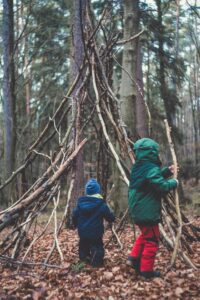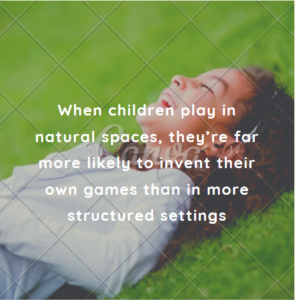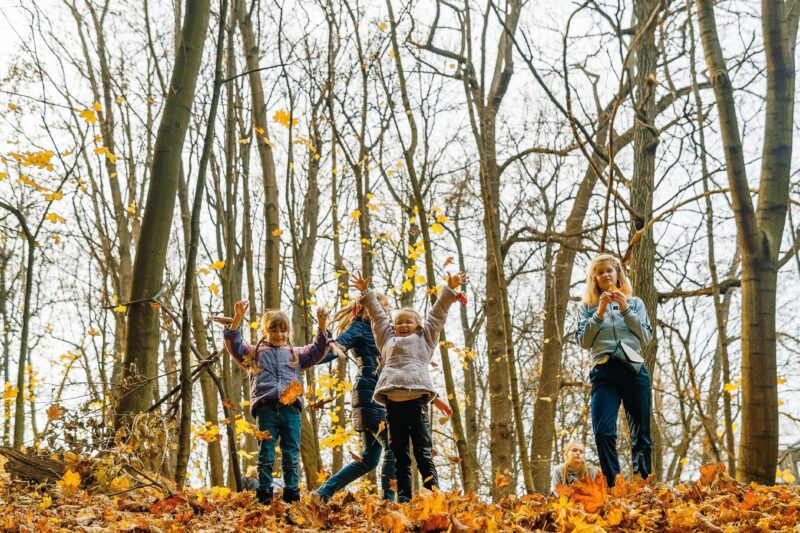When we think about our children and their connections with their surroundings, some of us may just limit it to family, friends, and school. However, children and Nature is an important aspect which is neglected. Indeed, the children’s connection to nature needs to be established. Hence, we will cover the connection children have with nature, importance of nature in child development, How these two may relate to each other? Finally, we will detail the emotional significance nature has on children.
How do Children and Nature relate?
With the rise of the age of the Internet, people of all ages begin to lean towards the digital, including children. A lot of parents start introducing their kids with high end tech to facilitate their learning process, enhance their skills; and provide them with a more modern view of life. Despite the significance of the aforementioned, children need to be invited to the natural world as well. Indeed, children and nature are interconnected with each other; as humans we are natural individuals who will always be connected to the natural world first, no matter the technological advancements. That being said, nature is the best environment for kids to explore, absorb, learn, and enjoy their time. With today’s tight schedule, children barely find the time to sit down with their own thoughts and bond with what nature has to offer. Between child care, school, extracurricular activities, our little ones may not experience a broad range of adventures as their time is limited, and even worse, structured. Such impediments might negatively affect their creative outlook. The best and most effective ways to avoid such unwanted repercussions, let your child wonder in nature.
According to the Penn State Extension’s Better Kid Care, Grass, pine cones, rocks, leaves, rain, and other natural materials provide an endless source of imagination to the child’s cognitive abilities. These materials come with no instruction; therefore it is up to the child to figure out how to make use of it. At this stage, most children who come in contact with nature begin to ask a lot of questions. What can I do with this? Why is it shaped like this? Does it have a smell? Does it taste good? We can notice that all of the five senses are simultaneously activated. Additionally, to keep the child’s safety from any danger they might encounter, adults need to step in and observe their kid’s interactions with nature. However, nature is not only found outside, it can be indoors, in schools, or wherever the child is located. The parent’s role hence is to ensure the presence of nature is felt everywhere. The article written by the College of Agricultural sciences, children and Nature: Are we supporting the connection? Perfectly illustrate the adult’s part in helping their child explore nature. Adults can provide natural materials to prospect the environment like magnifying glasses, shovels, then asking open end questions to keep the child engaged and focused. The article highlights the prominence of simulating the five senses and supporting the child’s interest in connection to nature. Furthermore, an important asset stated in the article is the Gift of Nature to children on their mental and physical well being. This brings us to the second part of this article which accentuates the different factors that make Nature an important resource in children’s lives.

Why is Nature So important for Children?
The Benefits of nature are countelss. There is no doubt that today’s generation prefers big screens, computer games, and other tech related activities rather than outdoor pursuits. Some parents may go farther and take away their kid’s electronics in hopes they can change their mind to spend time outside. Notwithstanding the intentions, this is not the proper way to do it. Communicating the importance of Nature to a child is the first step.
Louv (2005) and Hendricks (2001) asserted that less contact with nature (outdoors) and play-time prompts detrimental effects on children’s physical and mental development and the perversion in children’s attitudes and inceptions about substantial ecological relations culminated to a weaker environmental awareness and commitment for nature.
Mental Health:
During the pandemic, we have experienced what quarantine can do to our mental health and the long term damage it may cause to our well being. Relating this to our topic is fairly easy; nowadays, children experience a lot of anxieties and depression caused by the lack of movement, exploration, adventures, and even sun. They spend their time in their rooms binge watching cartoons or playing computer games that are devoid of any individuality. This harms the child’s self-esteem and limits their perception of reality. the proper approach to take in this case is to slowly infuse a sense of wonder into their lives which helps them ignite their inner sparkle It could be as simple as a walk in the park, where the child gets to meet nature’s gifts ; the sun, the singing birds, the swinging tree branches etc. It is an opportunity for kids to absorb a bright energy that can keep them going for days. This is ultimate freedom, no set rules to be followed as opposed to indoor activities. Nature has a wide variety of fun activities that can be very emmersive to children ; hiking, camping, football playing and the list goes on. Such an experience will positively reinforce physical health, which is the second part to be discussed in this section.
Physical Health:
Sitting to your favorite show as a kid may have been your favorite part of the day but it may cause other problems as you grow older. From back pain, obesity, and unhealthy eating style, indoor activities that do not involve physical movement will affect your body when you grow. A relevant study indicated that children aged 15 in Norway spent an average of 44hours watching TV when not at school (Samdal et al., 1998). Comparatively, running outside, and climbing monkey bars will enhance your limbs, stretch your legs, and ensure a healthy heart pumping. By venturing into nature, exploring how the body reacts, a great opportunity to create a connection between children and nature at a deeper level is established. According to Veronica Wallace (Childhood educator and blogging enthusiast.), in her article, she mentioned that adventuring in nature enhances a child’s physical health and promotes increased awareness of the physical world. Indeed free-time activities in nature contributed to the physical and mental development of children. It opens to children the door to become more curious about the natural world and try to explain why certain things are the way they are. It broadens their scope to not only rely on their eyes, but on their arms, legs, and breath to find out nature’s secrets.
Intelligence:
When a child is actively playing outside, all five senses are activated ; touching, smelling, tasting, and hearing, and seeing. Therefore, the experience will be like no other, very immersive and dynamic. Consequently, the child learns multiple skills and acquires broadened knowledge in different areas. It is said that Learning is likely to improve when a learner is more attentive ; less stressed ; more self-disciplined; more engaged and interested ; and more physically active and fit. This goes to say, if you would like your children to boost their intellectual abilities, then introduce your children to nature provide outside activities that promote physical engagement, attention, and interest.
Why Kids connected with nature happier?
There has been significant research on the effects of nature, and how it promotes happiness in adults. However, this segment will set the lights on how kids connected to nature are happier. Nature has proved to have a pivotal element in children and nature connection.
In a new study published in the journal Frontiers in Psychology, researchers wanted to test whether kids connected to nature are happier the same way as they tested for adults and whether children and nature were connected to each other or not. They began the study with 296 children aged from 9 to 12 and asked them to what extent they were happy when they are connected to nature – Children and nature in this research has been conducted based on the answers the children provided. The statements that are highly associated with children and nature were “picking up trash from the ground can help the environment,” “taking care of animals is important,” and “human beings are part of the natural world.”
Children and Nature Quotes:

Here we provide you with the best quotes related to children and nature:
- Every child needs nature. Not just the ones whose parents appreciate nature. Not only those of a certain economic class or culture or set of abilities. Every child. –Richard Louv
- Encourage your child to have muddy, grassy or sandy feet by the end of each day, that’s the childhood they deserve.”
Penny Whitehouse - You were wild once. Don’t let them tame you. Isadora Duncan
- “If we provide enough space and possibilities for moving freely, then the children will move as well as animals: skillfully, simply, securely, naturally.” Dr. Emmi Pikler
- It’s a wondrous thing how the wild calms the child. -Unknown
- The more children is connected to nature, the more he is happy. In other words, Children and nature equals happiness. -Unkown
I hope these children and nature quotes below inspire you to get outside and give these outdoor activities a try!
Resources :
We recommend these websites to have a deeper understanding on Children and Nature :
https://empoweredparents.co/exploring-nature-with-children/
https://childmind.org/article/why-kids-need-to-spend-time-in-nature/

A Content Writer & Freelance Translator. He enjoys writing about mental health, fun for seniors, educational apps, and entertainment for all. In his spare time, he enjoys watching football, playing video Games, and good laugh with his friends.









